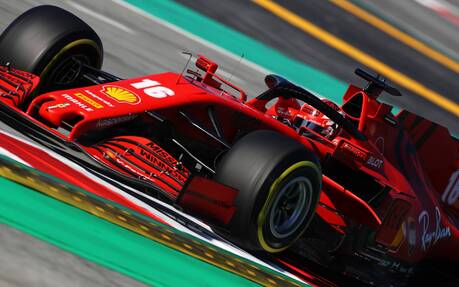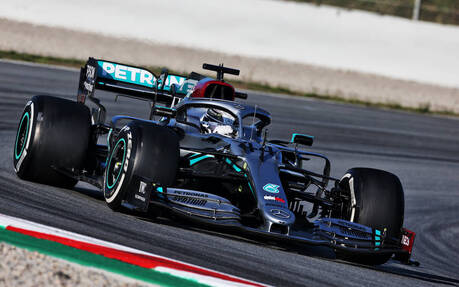Do Automakers Have a Future in Formula 1?
Honda shocked many people last Friday by announcing it will withdraw from Formula 1 at the end of the 2021 season, leaving the prestigious racing series with only three engine manufacturers (Mercedes, Ferrari, Renault).
The Japanese automaker wants to focus on green energies including batteries and fuel cells. In fact, it simultaneously confirmed its support to IndyCar as a hybrid powertrain supplier beginning in 2023.
- Also: Formula One Wants to Become Carbon Neutral by 2030
- Also: Extreme E: When Formula E Goes Off-road
F1, meanwhile, is facing an existential crisis—one that will be the primary challenge of incoming CEO Stefano Domenicali, who will take over in January after years at Lamborghini.
Is the sport still relevant to automakers at a time when electrification is rapidly becoming the new norm? Some people doubt it, including former Cosworth F1 engine head Mark Gallagher.
"Formula One is now at risk of becoming slightly irrelevant to car manufacturers, and particularly car manufacturers who are not yet vested in the sport, because the world of vehicles is changing much faster than even five years ago people thought would be the case," he said in an interview with Reuters.

While acknowledging that Honda’s decision (to pull out of F1) came as a shock, Gallagher thinks it is entirely in keeping with what we are seeing happening around the world.
"For Formula One it poses some pretty fundamental questions about what they are going to do over the next three or four years," he added. “Formula One finds itself in a slightly unenviable position of being wedded to fossil fuel-based technologies at a time when the rest of the world is moving in a different direction."
New engine rules are coming into effect next year, though their design will stay pretty much the same—a turbocharged 1.6-litre V6 with kinetic energy recuperation.
At the end of last season, F1 announced a plan that calls for all Grand Prix events to be sustainable by 2025 and the sport to achieve a net zero-carbon footprint by 2030.
In case you’re wondering, 10 automakers are involved in Formula E, including the German quartet of Mercedes, BMW, Audi and Porsche.
